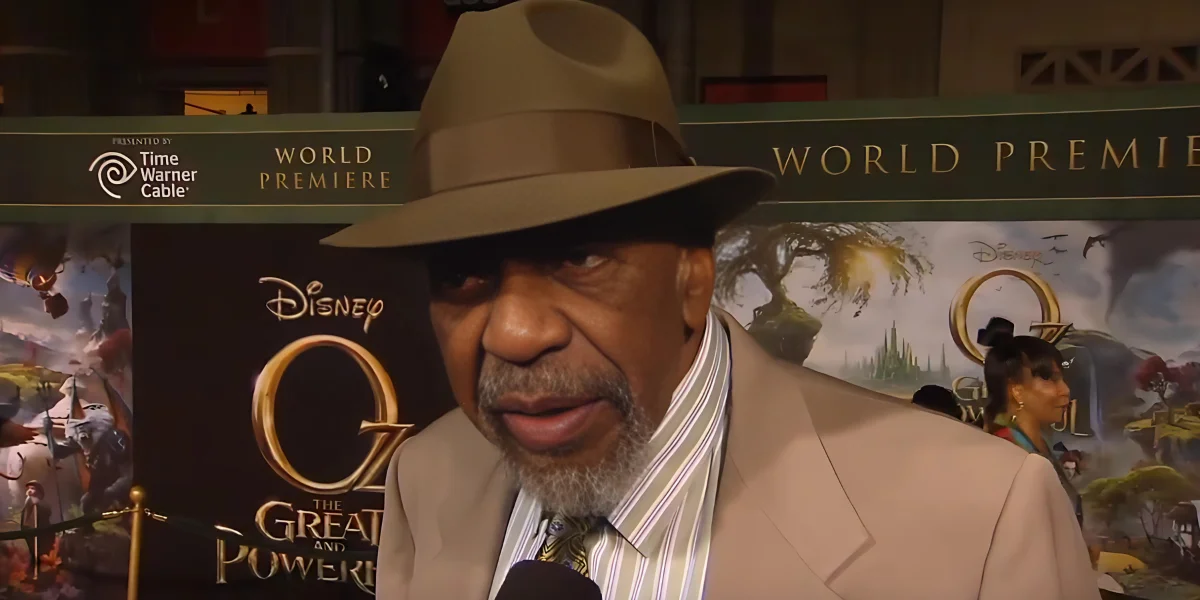David Lynch, director of 'Twin Peaks' and 'Mulholland Drive', died at 78

David Lynch, an important director best known for his distinctive and surrealistic films and television episodes such as "Blue Velvet" and "Twin Peaks," has died. He was 78.
His death was revealed via his official Facebook page, and his family wrote:
“It is with deep regret that we, his family, announce the passing of the man and the artist, David Lynch. We would appreciate some privacy at this time. There’s a big hole in the world now that he’s no longer with us. But, as he would say, ‘Keep your eye on the donut and not on the hole.’”
“It’s a beautiful day with golden sunshine and blue skies all the way.”
Lynch's nearly 50-year cinematic career was marked by a succession of unique, highly styled films that frequently included bizarre scenarios, broken timelines, and spooky themes. In 2006, he received the Golden Lion for lifetime achievement at the Venice Film Festival, followed by an honorary Oscar in 2019 for "a lifetime of artistic accomplishment." He also had four Oscar nominations in competitive categories, including three for best director for 1980's "Elephant Man," 1986's "Blue Velvet," and 2001's "Mulholland Drive."
David Keith Lynch was born on January 20, 1946, in Missoula, Montana, as the eldest of three children. His father worked for the United States Department of Agriculture, and the family relocated frequently. Lynch characterized his youth as "very beautiful, sort of perfect world."
However, as an art student at the Pennsylvania Academy of Fine Arts in the 1960s, he witnessed the darker side of America while living in a crime-ridden, run-down neighborhood of Philadelphia with his wife and young daughter. He recognized the city as the most significant impact on his life.
Lynch began experimenting with films in Philadelphia, where he also had a family, intrigued by the concept of moving his paintings.
“I was painting, and the painting, as I said before, I was painting very dark paintings. And I saw some little part of this figure moving, and I hear a wind,” he said in a 1997 interview. “And I really wanted these things to move and have a sound with them. And so I started making an animated film as a moving painting. And that was it.”
In 1970, he went to Los Angeles with his family, where he enrolled in the American Film Institute Conservatory and began working on his first feature film, the cult classic "Eraserhead," a blend of body horror and parenting drama. The black-and-white picture was released in 1977 and has been shown at midnight for many years.
Lynch followed "Eraserhead" with the financial success "The Elephant Man," starring John Hurt as Joseph Merrick, and "Dune," a critically criticized version of Frank Herbert's science fiction novel.
His second major film, "Blue Velvet," has many of the characteristics that appear in his previous works: a hallucinatory storyline featuring sex and violence, a suburban setting that masks the dark underworld beneath, and performances by regular Lynch collaborators Kyle MacLachlan and Laura Dern.
Some critics regarded it as his masterwork and the greatest picture of the decade.
Lynch released "Wild at Heart" - a romantic crime picture starring Dern and Nicolas Cage that won the Palme d'Or at the Cannes picture Festival - and "Twin Peaks," one of his most influential works, in 1990. The cult classic TV program stars MacLachlan as a polite but quirky FBI agent investigating the strange death of the homecoming queen in the lovely fictitious town of Twin Peaks. The show's first season got 14 Emmy nominations. Despite being discontinued after only two seasons, the series is regarded as one of the most influential television shows of all time.
Lynch has taken a long break from creating feature films during the previous two decades. Dern, Jeremy Irons, and Justin Theroux featured in his most recent feature picture, "Inland Empire," a psychological thriller released in 2006. In the meanwhile, he has directed various short films and music videos, including for Interpol and Nine Inch Nails.
Lynch's long-awaited third season of Twin Peaks, "Twin Peaks: The Return," premiered in 2017, 25 years after the first series.
Although he is most known as a filmmaker, Lynch kept the painting practice that launched his career as an artist and dabbled in music, releasing a rock album called "BlueBob" in 2001, an EP called "This Train" in 2011, and a "modern blues" album called "The Big Dream" in 2013.
The famed director married four times and had four children.
"I love what I do and I get to work on stuff I want to work on. I wish everybody had that opportunity," he told Vulture in a 2018 interview.







